
Table of content
TL;DR
Firebase is a backend-as-a-service (BaaS) platform that simplifies building mobile and web apps. With its features like a real-time database, cloud messaging, authentication, hosting, crashlytics, performance monitoring, and test lab, Firebase empowers developers of all levels.
Introduction
Building mobile and web applications can be challenging, especially when it comes to managing the complex backend infrastructure. But fear not, there’s a powerful BaaS (Backend-as-a-Service) platform called Firebase that makes app development a breeze. Firebase offers a range of features that make it easy to create real-time apps and improve user experiences.
What is Backend-as-a-Service (BaaS)?
Backend-as-a-Service (BaaS) is a cloud computing service that provides a ready-to-use backend infrastructure for mobile and web app developers. It eliminates the need for manual backend setup, allowing developers to focus on frontend features and user experiences. BaaS offers a set of pre-built tools, services, and APIs, streamlining app development and enabling scalable, innovative, and efficient applications.
What is a Firebase?
Firebase is an all-in-one platform that offers a variety of services to help you create superior mobile and web apps. As a BaaS platform, it handles backend infrastructure, allowing developers to concentrate on frontend and app features.
Features of Firebase
Firebase offers a wide range of powerful features that simplify app development and enhance user experiences. Let’s explore some of the standout features that make Firebase a go-to platform for developers.
1. Authentication
Handling user authentication can be a complex task, but Firebase simplifies it by providing easy-to-use authentication services. It supports various authentication methods, including email/password, phone number, social media accounts, and more. Developers can effortlessly implement secure authentication flows without spending excessive time on backend development.
2. Real-time Database
Firebase’s Real-time Database is a NoSQL cloud-hosted database that stores data in JSON format. What makes it unique is its real-time synchronization capability, enabling data changes to be instantly propagated to connected clients. This feature is particularly valuable for chat apps, collaborative tools, and any application requiring real-time updates.
3. Cloud Firestore
Cloud Firestore is Firebase’s next-generation cloud-native NoSQL database. It offers improved scalability, real-time synchronization, and offline support, making it an excellent choice for building dynamic applications. With Firestore, developers can create powerful and responsive apps that work seamlessly both online and offline.
4. Cloud Functions
Firebase allows developers to extend the functionality of their applications using Cloud Functions. These serverless functions run in response to events, such as changes to data or user actions, eliminating the need for maintaining separate backend servers. This not only reduces development complexity but also improves app performance and scalability.
5. Cloud Storage
Managing and serving files in an app can be cumbersome, but Firebase’s Cloud Storage simplifies the process. It offers secure and scalable file hosting, enabling developers to store and serve user-generated content, such as images, videos, and documents effortlessly.
6. Hosting
Firebase Hosting provides a fast and secure way to host web apps and static content. It comes with a content delivery network (CDN) that ensures quick loading times, global availability, and robust security measures. With Firebase Hosting, developers can deploy and update web apps with ease.
7. Cloud Messaging
Firebase Cloud Messaging (FCM) facilitates reliable and efficient messaging between servers, devices, and users. It enables developers to send notifications, alerts, and messages to a wide range of devices, enhancing user engagement and retention.
Why Use Firebase?
As with any platform, Firebase comes with its own set of pros and cons that developers should consider before making a decision. While it offers a range of powerful features and ease of use, it also has limitations like vendor lock-in and potential complexities. In this section, we’ll take a look at the advantages and disadvantages of Firebase to help you make an informed choice for your app development needs.
Pros of Firebase
- Easy to Use: Firebase offers clear documentation, concise tutorials, and abundant examples, making it highly accessible for developers.
- Scalable: Effortlessly add users and features without compromising performance, thanks to Firebase’s scalable infrastructure.
- Secure: With data stored in Google’s secure cloud infrastructure, Firebase ensures top-notch security.
- Reliable: Benefit from Google’s proven track record of uptime and performance, making Firebase a reliable choice.
- Cost-Effective: Firebase caters to small projects with its free tier, and its affordable paid plans are budget-friendly.
Cons of Firebase
- Closed Source: Firebase is a closed source platform, limiting access to the underlying code, making customization challenging for specific needs.
- Vendor Lock-In: Firebase is a part of Google’s ecosystem, which might create vendor lock-in, limiting the flexibility to migrate to other platforms.
- Limited Querying Capabilities: While Firebase’s real-time database and Firestore are powerful, they may lack some advanced querying capabilities found in traditional SQL databases.
- Costs for High Usage: While Firebase offers a generous free tier, costs can increase as the app scales and experiences higher user traffic.
Conclusion
Firebase is a powerful platform that simplifies app development with its real-time capabilities, ease of use, and scalability. It offers a range of features, including a real-time database, cloud messaging, authentication, hosting, crashlytics, performance monitoring, and test lab, making it a compelling choice for developers seeking to build innovative mobile and web applications. However, it’s essential to be mindful of potential limitations, such as vendor lock-in and limited querying capabilities. By considering both its advantages and disadvantages, developers can make an informed decision and harness Firebase’s potential to create exceptional user experiences and streamline the app development process.